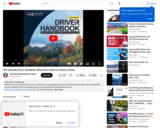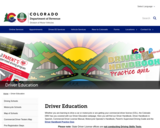About Construction Contracting: Business and Legal Principles, 2nd edition by Stuart H. Bartholomew: Exceptionally practical and authoritative, this introduction to construction contracting as it applies to typical, every-day situations explains “theoretical” ideas in terms of what really happens in practice. It emphasizes the more common case law holdings and industry customs that help avoid troublesome legal issues during the completion of a project. - Provided by previous publisher.
Have you adopted this book for a course? We'd love to know. Please complete the adoption form at: https://bit.ly/construction_contracting
Find me free online in PDF at
https://doi.org/10.21061/constructioncontracting2e
Find me free online in Pressbooks at
https://pressbooks.lib.vt.edu/constructioncontracting
Table of Contents
1. Interface of the Law with the Construction Industry
2. Contract Formation, Privity of Contract, and Other Contract Relationships
3. The Prime Contract - An Overview
4. Prime Contract - Format and Major Components
5. Owner-Construction Contractor Prime Contract "Red Flag" Clauses
6. Labor Agreements
7. Purchase Order and Subcontract Agreements
8. Insurance Contracts
9. Surety Bonds
10. Joint-Venture Agreements
11. Bid and Proposals
12. Mistakes in Bids
13. Breach of Contract
14. Contract Changes
15. Differing Site Conditions
16. Delays, Suspensions, and Terminations
17. Liquidated Damages, Force Majeure, and Time Extensions
18. Allocating Responsibility for Delays
19. Constructive Acceleration
20. Common Rules of Contract Interpretation
21. Documentation and Records
22. Construction Contract Claims
23. Dispute Resolution
Published in 2002 as ISBN 1-13-091055-4 | Rights reverted to estate 2022 | Published by the Open Education Initiative of the University Libraries at Virginia Tech 2022 as ISBN 978-1-957213-20-0 under CC BY NC SA 4.0.
(c) Estate of Stuart H. Bartholomew. Released with permission by the University Libraries at Virginia Tech under Creative Commons Attribution NonCommercial- ShareAlike (CC BY NC-SA) 4.0 License. https://creativecommons.org/licenses/by-nc-sa/4.0/legalcode This material was previously published by Pearson Education, Inc.
Any derivatives of this work must comply with the requirements of the Creative Commons license and include the following statement, “This material was previously published by Pearson Education, Inc.”
Accessibility Statement: The Open Education Initiative at the University Libraries at Virginia Tech is committed to making its publications accessible in accordance with the Americans with Disabilities Act of 1990. The PDF and online versions of this book utilizes header structures and alternative text which allow for machine readability and navigation.
Note to users: This work may contain components (e.g., illustrations, or quotations) not covered by the license. Every effort has been made to identify these components but ultimately it is your responsibility to independently evaluate the copyright status of any work or component part of a work you use, in light of your intended use.


